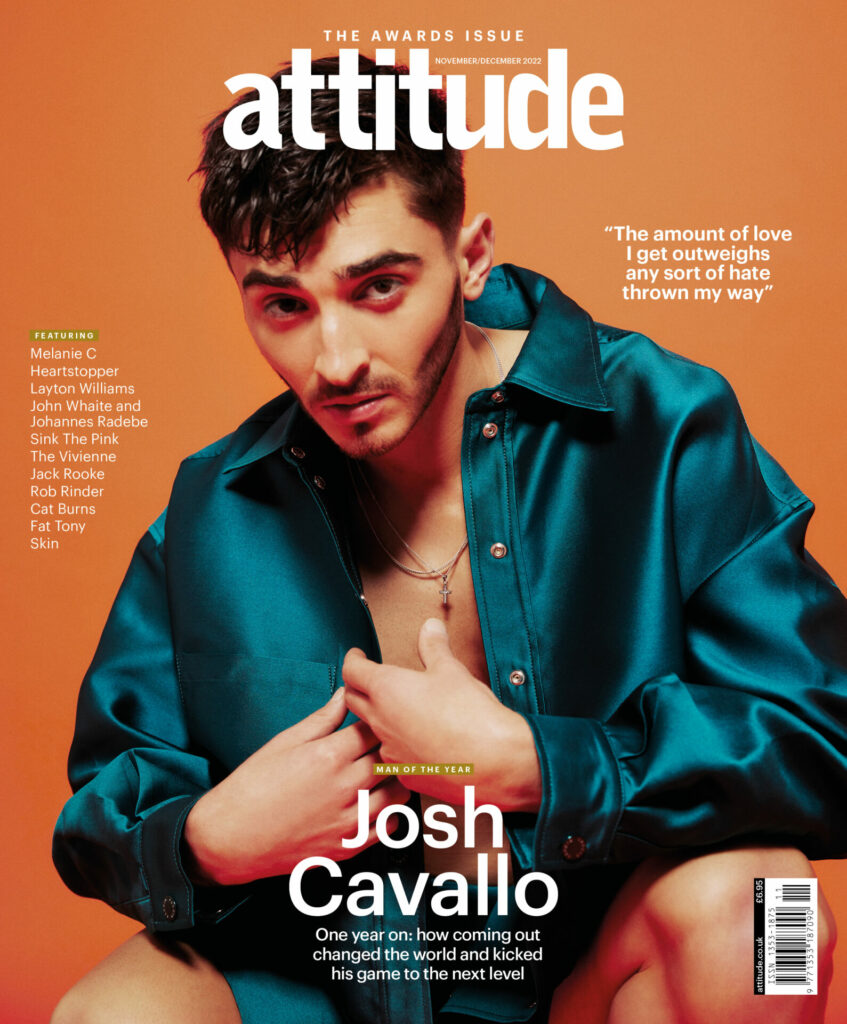How Jack Rooke’s Big Boys became the comedy hit of the year
Attitude Breakthrough Award winner Jack opens up about the real story behind the acclaimed Channel 4 series.
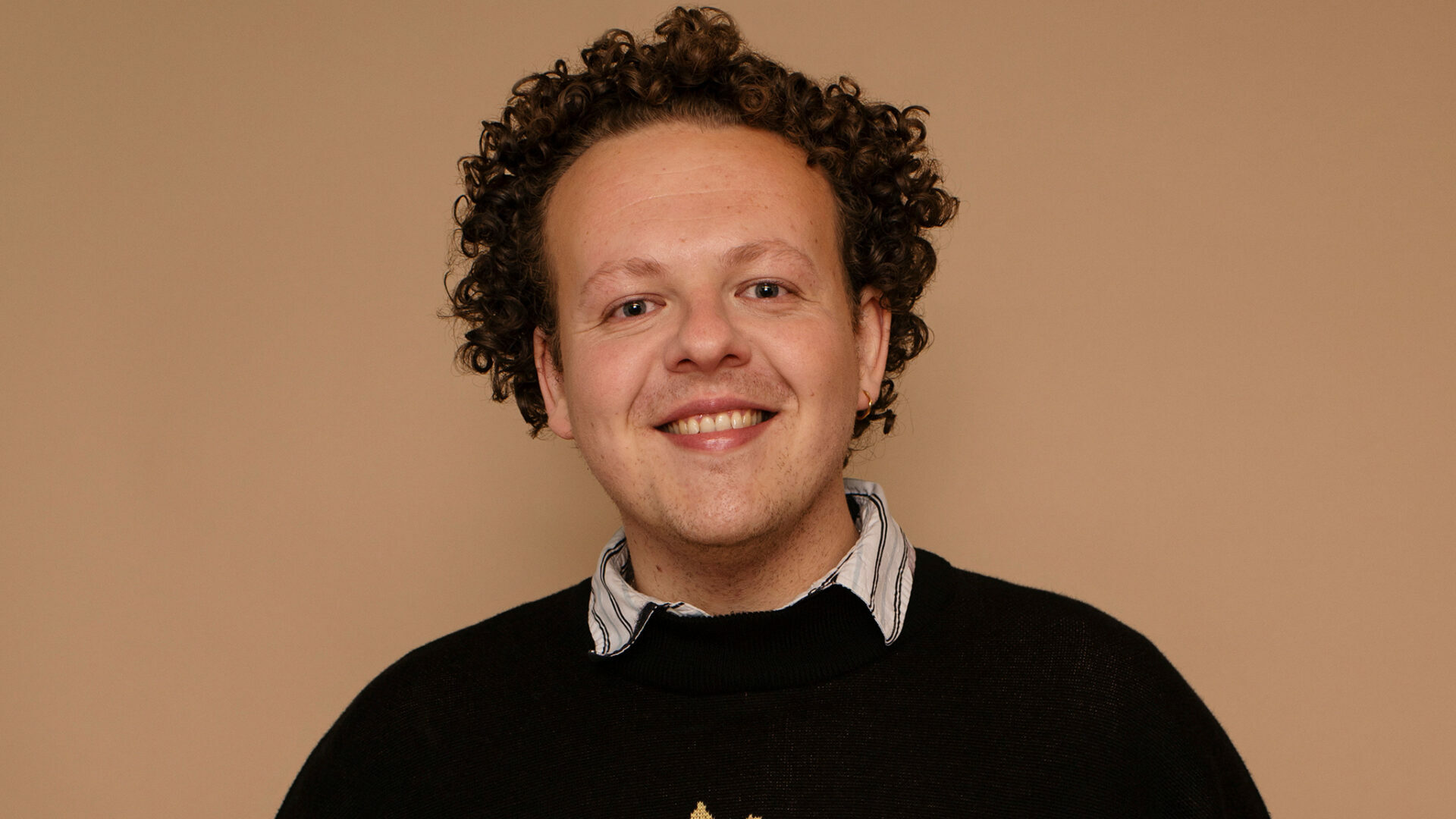
Jack Rooke is bursting with excitement during his Attitude Award shoot. We’re celebrating the hit Channel 4 show Big Boys, which is also remarkably his first outing as a TV writer. “Attitude was one of the only gay magazines to get behind the show,” he says. You’re welcome, Jack.
Five years in the making, the coming-of-age sitcom Big Boys finally aired on Channel 4 in May this year. The series follows writer Jack Rooke’s namesake ‘Jack’ arriving for his first year at university, having delayed enrolment following the sudden loss of his dad the year before. The story echoes much of Rooke’s real-life experiences, having battled depression after his father Laurie passed away from cancer.
In Big Boys, closeted Jack (Derry Girls’ Dylan Llewellyn) meets straight lad’s lad Danny (Jon Pointing) when the pair are lumped in the same shabby shared accommodation outside of the main uni halls. Awkward sexcapades, poppers-fuelled late nights in the local gay club, and tear-inducing moments of tenderness ensue as the pair form a tight bond and provide an unexpected anchor for each other.
When it came to how their story translated on screen, it would have been understandable if Rooke, 29, had approached the air date with trepidation. “Everyone was trying to get me quite match-ready and be like, ‘Don’t look on Twitter, don’t look online.’ People are horrible, especially about comedy. People really like to say when they don’t find something funny or when they hate your subjective take on what is humorous.”
He needn’t have worried: viewers adored it and the critical reaction was overwhelmingly positive. “I was waiting for the dissent of people being like, ‘Fuck this show, what a load of gay crap.’ And then, there was no horrible tweet. It was the opposite,” Jack remembers of when the reviews — and praise — piled in. “Even Channel 4 were like, ‘This is the nicest, most positive response we’ve ever had to a comedy online.’”
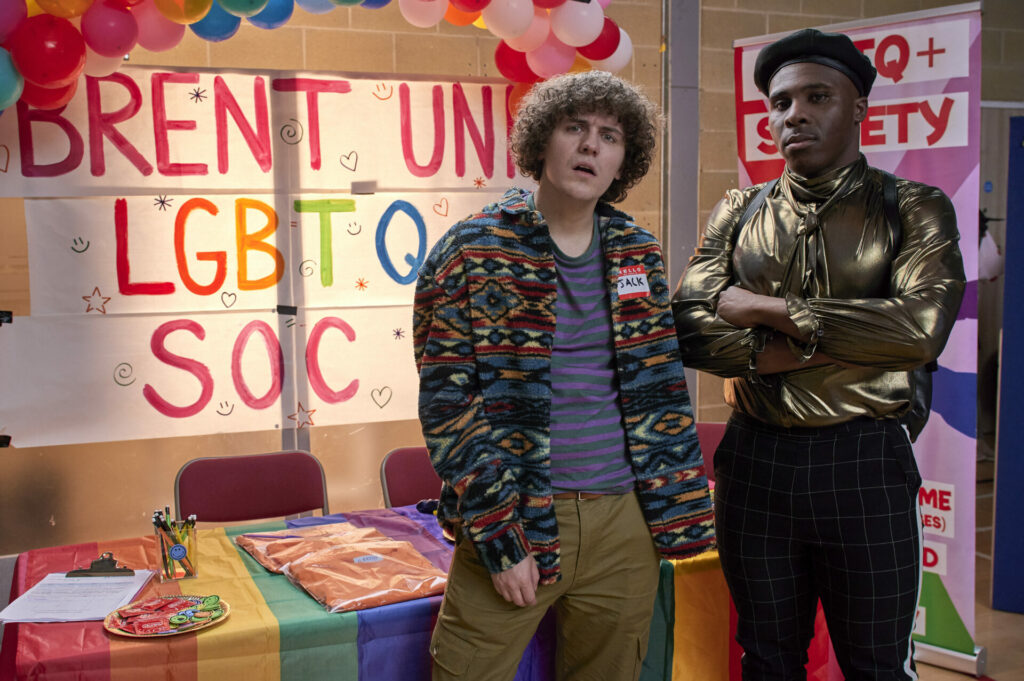
In a world that is quick to find fault in the smallest detail, it was a mild pearl-clutching moment for Rooke. “It was too nice, actually; I’m quite suspicious of it,” he says sardonically.
“I always think that the internet isn’t a very accurate barometer of how people actually feel, especially when it comes to LGBTQ+ issues. If you went on the internet, you would think that being queer is just the fucking most painful, contested, argued, culture wars-type thing,” he tells me as we sit down for our chat post-Attitude Awards shoot, which takes place in an unassuming (read: unglamorous) photo studio in a former office block.
“But actually, for the reality of most people — it is for me, certainly — it plays a very insignificant part of my everyday, if that makes sense. I’m not going around Sainsbury’s thinking, ‘Oh my God, I’m queer!’ I’m just getting on with my life. And I think most queer people are. And that’s why all those debates are so toxic because they prevent queer people from just being normal and having boring lives, which they deserve to have, if they want.”
Struggling with his sexuality has ranked low on Rooke’s list of life problems. “Being gay has not been the hardest thing I’ve gone through,” says Rooke. “For me, coming out was number nine on the list of traumatic, difficult things I’ve been through, like losing my dad or going through mental health issues, and what happened with my friend, who Danny is slightly based on.
“What I felt like with Big Boys is that the trauma is way more connected to bereavement and grief, which is a more unanimous experience. We’re all going to lose someone at some point. We’re all going to go through that. So, I didn’t really feel like there needed to be a traumatic gay storyline in the mix.”
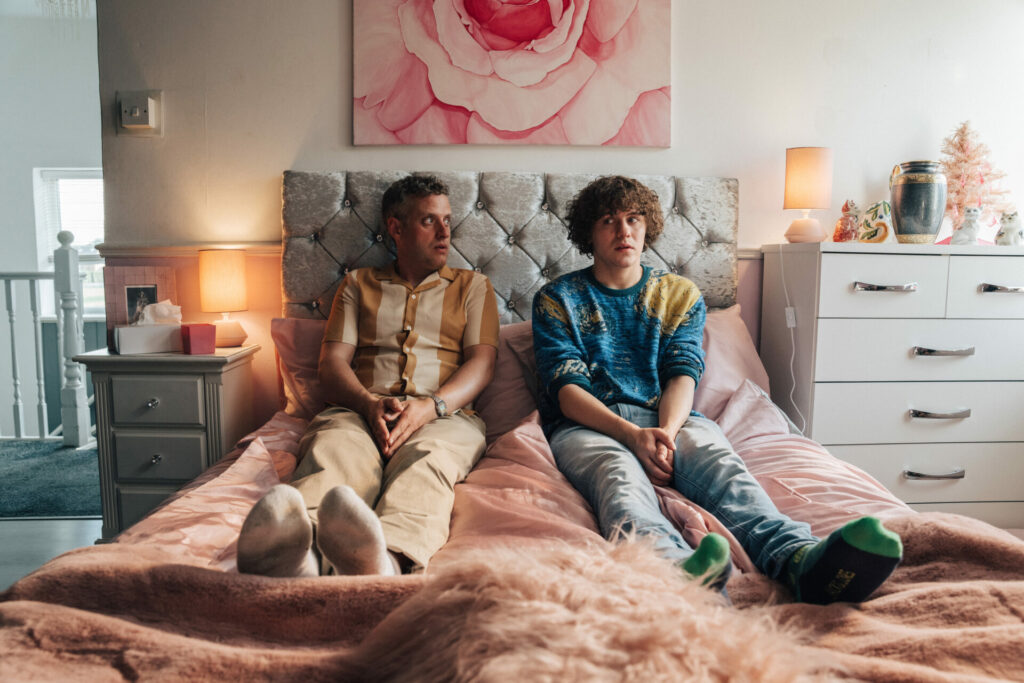
Writing a story in which the straight boy is completely at ease with his new gay best mate was important to Rooke. “I think we need allies right now. We need more protectionism, and to cross those divides. I also think straight people, on the whole — most of the ones that I meet in my own little bubble — they love queer culture and they really want it to be celebrated. They want it to do well.”
Rooke’s career is rooted in a kind of comedy that focuses on the everyday, from the hedonistic highs of young adult life to the turbulent lows of growing up. Inspiration has come from his hometown of Watford and his matriarchal family — he wrote his first Edinburgh Fringe show Good Grief with his nan (“Which is me and her in her council flat sharing biscuits, and basically just bitching about people who pissed us off after Dad had died”). Not to mention the experiences of those closest to him, including the devastating fall-out of losing a friend who took their own life. Aside from his day job as a comedy writer, Rooke has dedicated the past 10 years to working as an ambassador for CALM, the charity that supports people impacted by suicidal feelings.
It was this work that helped inspire his book Cheer the F*ck Up. “It’s about giving people coping mechanisms because, let’s face it, if you are really depressed and anxious in this country, you could wait fucking weeks for help,” he asserts. “You could wait ages to try and get someone to actually support you or give you some psychological assistance.”
The issues that the book tackles are central to Big Boys’ themes. “The mental health approach in this country, or the mental health conversation, is far too basic. It’s basically ‘talk and open up and you’ll feel better,’” he says, his voice shifting from soft and jovial to a tougher, firmer tone. We discuss how people have largely lost the ability to really listen to each other.
“Exactly. We’re not listening, and we’re not taught how to actually cope. That’s what I think Big Boys is about. Those two friends, Jack and Danny, are supporting each other to cope with stuff that they’re too young, or perhaps too under-supported, to actually go through and come out the other side of. And that’s the importance of friendship, I think. Big Boys to me is an ode to friendship. But there’s also only so much friendship can do.”
Back in the real world, Rooke sees the UK’s mental health crisis escalating. “I think a lot of people right now are struggling because they’re from a certain economic background that means that it’s fucking tough. There are people working three or four jobs. The fact that we are just going to let energy bills go that high, or we are just going to let people get further and further into debt, we’re creating mental health issues. Stress and worry and anxiety causes all that stuff.”
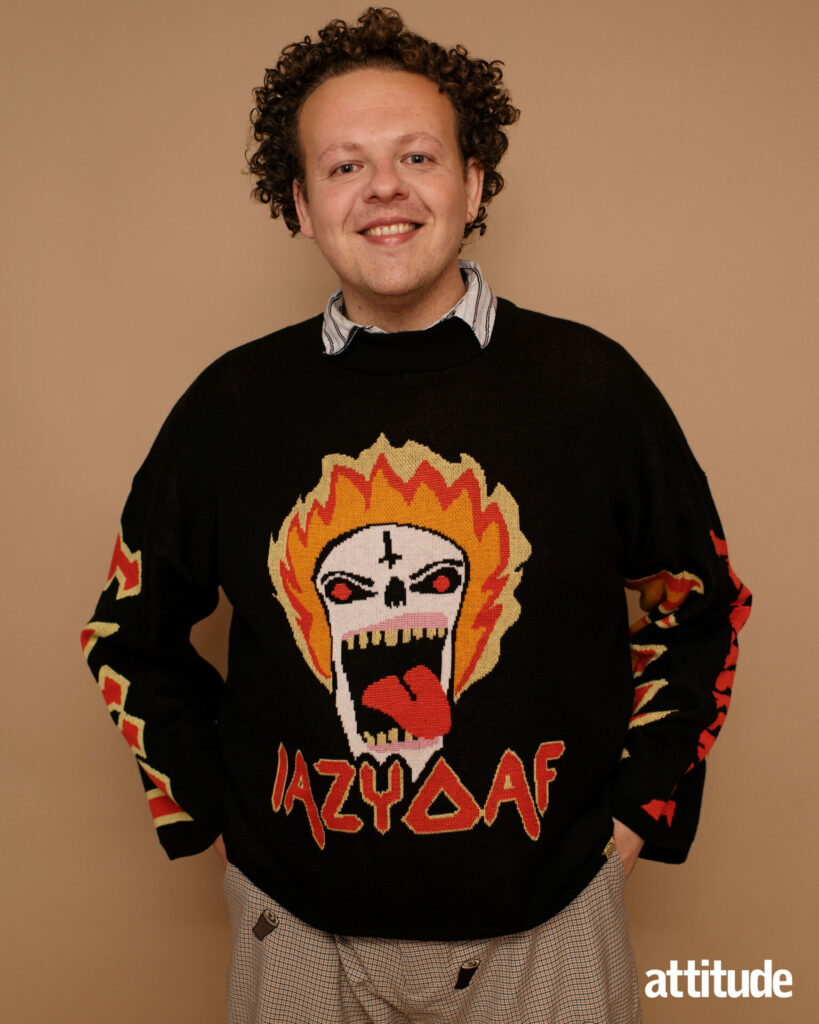
He is equally scathing of the government’s disregard of the NHS. “Meanwhile, we are letting the mental health system and all the nurses and all the people that are trying to help feel overworked, stressed, worried… not being able to get the help that both patients and therapists need. It’s way more complex than we think.”
On Liz Truss’s new government, Rooke is even less forgiving. “I also think that the current political landscape, especially this new cabinet, is full of people who voted against equal marriage and full of people that voted against same-sex, equal rights. In a way, that’s going to have a knock-on effect. The government had a Minister for Mental Health and Suicide Prevention. They scrapped that. They had it for two years. It was a bit like a PR stunt to be like, ‘We are doing something about it.’
“And, both times, the two ministers they had voted consistently against gay rights, consistently against equal rights, consistently against helping people who are underpaid get support. It’s like, well then, they don’t understand why people are having mental health issues. If they’re voting against equal rights, then they are creating mental health issues in people.”
Real heroes, Rooke attests, live among us. “I just love working-class older women. I think they’re the most important demographic in the country because they hold everything up. They work all the jobs. They hold the state up and they’re also the most invisible, culturally,” he says. “Women get to a certain age and they fall off the map. For me, I think that’s the worst. I want to do the opposite. I want to write about more working-class older women, and write about more mums and aunties and stuff like that. Because these are women who have lived lives, who’ve got loads of great, valid stories to tell.”
While it is the women in his family who have shaped his world, one person that arguably changed his perspective after his father passed away is more of a surprise. “I did a five-minute lip sync on stage in my show pretending to be Geri Halliwell talking to Piers Morgan about her dad dying. She attributed it to the success of the Spice Girls in a way that, weirdly, I really bought. I really believed she was correct. She was basically like, ‘My dad died [when I was] 21 and it just unlocked me and made me just be like, ‘I’m going to fucking make it. No matter what happens now, I’m going to make it.’”
Fate was determined to drive the message home to Rooke: Geri Halliwell is also from Watford, and her father was also called Laurie. “Watching Geri Halliwell on Piers Morgan’s Life Stories talking about losing her dad was the most seen I’d felt. It’s the most I’d heard anyone talk about parental bereavement or losing a parent in your adolescence. She was 21. I was 15. Losing someone really young was an incredible thing for me, certainly, to hear about,” says Rooke as we wrap up our interview. “And I also just fucking love the Spice Girls. So, I’m just copying Geri, although I won’t be hugging any Tories anytime soon.”
Check out Jack Rooke’s acceptance speech from the 2022 Virgin Atlantic Attitude Awards below:
The Attitude Awards issue is out now
